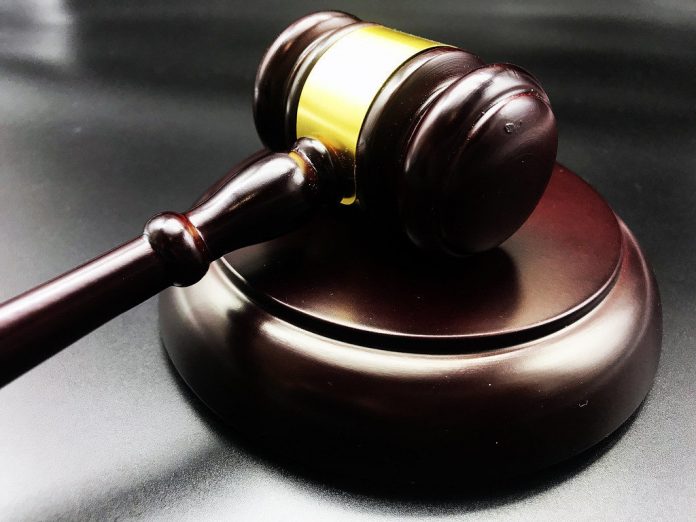This article has been written by Oishika Banerji of Amity Law School, Kolkata. This article provides a detailed understanding of the place of suing under the Code of Civil Procedure, 1908 in light of case laws.
Table of Contents
Introduction
The expression ‘place of suing’ signifies the venue for the trial. The same has nothing to do with the competency of the court. Section 15 of the Code of Civil Procedure, 1908 requires the plaintiff to file a suit in the court of the lowest grade competent to try it. Provisions for the immovable property have been spread over Sections 16 to 18 of the aforesaid Code. Section 19 specifically applies to suits for compensation for wrongs to persons or movable property. Section 21 of the Code recognizes the well-established principle that defects as to territorial or pecuniary jurisdiction can be waived. A substantive suit for setting aside a decree passed by a court on the ground of want of territorial jurisdiction is expressly barred by Section 21-A of the Code.
Pecuniary jurisdiction
Section 15 of the Code of Civil Procedure, 1908 provides that a suit must be instituted in the court of the lowest grade which is competent to try it. This rule being of a procedural nature does not affect the jurisdiction of the courts. Thus, as the Nagpur Bench of the Bombay High Court observed in the case of Gopal v. Shamrao (1941), a decree passed by a higher court cannot be said to have been passed without jurisdiction. The two-fold objective of Section 15 has been provided hereunder:
- Reduce burdens of the higher courts;
- Afford convenience to the parties and witnesses who may be called for examination in such suits.
The jurisdiction of a court under Section 15 is determined by the plaintiff’s valuation in the plaint and not the amount for which the decree will be finally passed by the court.
Kiran Singh v. Chaman Paswan (1954)
A bench of Justices Aiyyar and T.L. Venkatarama took into account Section 11 of the Suits Valuation Act, 1887 while deciding the case of Kiran Singh v. Chaman Paswan (1954). Section 11 of the Suits Valuation Act, 1887 as well as Sections 21 and 99 of the Code of Civil Procedure, 1908 are based on the principle that once a case has been tried on its merits and a judgment has been rendered, it should not be subject to reversal solely on technical grounds unless there has been a failure of justice.
The Legislature’s approach has been to regard territorial and monetary jurisdictional challenges as technical matters that should not be considered by an appellate court unless there has been prejudice on the merits. Whether or not there was prejudice is a question that must be answered based on the facts of each instance. When a subordinate court incorrectly assumes jurisdiction as a result of over-valuation or under-valuation and a resultant failure of justice, the jurisdiction under Section 11 is an equitable one to be exercised. It is not feasible nor desirable to define such jurisdiction precisely or to limit it to certain boundaries.
The Apex Court observed that ‘a party who has resorted to a forum of his own choice on his own valuation cannot himself be heard to complain of any prejudice’. Holding that the appeal heard by the District Court in this present case was fair and justified, the decision of the learned Judges that there were no grounds for interference under Section 11 of the Suits Valuation Act, 1887, in this case, was viewed to be correct.
Mazhar Husain And Anr. v. Nidhi Lal (1885)
The pre-independence case of Mazhar Husain And Anr. vs Nidhi Lal (1885) which was heard by the Allahabad High Court, had laid down the objectives of Section 15 of the Code of Civil Procedure, 1908. The objectives which have been observed are provided hereunder:
- To avoid overburdening of the courts of higher grades with suits;
- To afford the convenience of the parties and witnesses who may be examined in such suits.
Tara Devi v. Sri Thakur Radha Krishna Maharaj (1987)
In the case of Tara Devi v. Sri Thakur Radha Krishna Maharaj (1987), Defendant had submitted a written statement in which he lodged a preliminary objection, claiming that Plaintiff had devalued the suit and questioning the Court’s authority to hear the case. The Trial Court determined that the litigation was regulated by Section 7(IV)(c) of the Court Fees Act, 1870 and that the Plaintiff had correctly assessed the lessee’s leasehold interest. The Trial Court had observed that Plaintiff had the Right to Place his own value on the relief sought. The valuation was neither arbitrary nor unreasonable, and as a result, it was determined that Plaintiff had correctly assessed the claim and that the required court fee had been paid.
The Supreme Court of India while deciding the case had upheld the Trial Court’s decision and had observed that when there is an objective criterion of valuation, putting a value on the relief while ignoring those criteria may be demonstrably arbitrary and irrational, and the Court will be justified in interfering.
Territorial jurisdiction
In order to discuss territorial jurisdiction of a court, the four types of suits that are to be considered are:
- Suits in respect of the immovable property (Sections 16-18);
- Suits in respect of the movable property (Section 19);
- Suits in respect of compensation for wrongs (Section 19);
- Other suits (Section 20).
Section 17 of the Code of Civil Procedure, 1908 provides the provision for suits of immovable property located within the jurisdiction of different courts. The provision provides that suits can be filed in different courts within the local limits of whose jurisdiction any portion of the property lies, provided that suit is within pecuniary jurisdiction of such courts. Further, Section 18 of the Code lays down the provision for place of institution of the suit where local limits of the jurisdiction of Courts are uncertain.
Hakam Singh v. Gammon (India) Ltd. (1971)
The issue before the Supreme Court of India while deciding the case of Hakam Singh v. Gammon (India) Ltd. (1971) was when two or more courts have jurisdiction to entertain a suit, then how shall the trial of the suit proceed. Defendant, a firm incorporated under the Indian Companies Act, 2013 with its major place of business in Bombay, entered into a contract with Plaintiff that allowed for arbitration of dispute and indicated that disagreements would be resolved solely in Bombay courts. Plaintiff had objected to such restriction on the ground that the same is against public policy.
The observations made by the Apex Court have been listed hereunder:
- By virtue of Section 41 of the Arbitration Act, 1940 the Code of Civil Procedure, 1908 applies to actions under the same in its entirety. The Code of Civil Procedure, 1908 governs the courts’ authority to consider an arbitration procedure for the purpose of submitting an award under the Arbitration Act, 1940. The Respondent company, which had its major place of business in Bombay, was liable to be sued in Bombay under the terms of Section 20(a) of the Code of Civil Procedure read with Explanation. 11.
- It would not be permissible for the parties to confer jurisdiction on any court by agreement if the same has not been conferred by the Code. However, if two courts have jurisdiction to try a suit under the Code of Civil Procedure, 1908 an agreement between the parties that the disagreement between them be handled in one of those courts would not be adverse to public policy.
- The agreement between the parties that the courts in Bombay alone shall have authority to try the proceedings pertaining to the arbitration was binding between them since the courts in Bombay possessed jurisdiction under the Code of Civil Procedure, 1908 in this matter.
M/s. Exl Careers and Another v. Frankfinn Aviation Services Private Limited (2020)
The Supreme Court of India while deciding the case of M/s. Exl Careers and Another v. Frankfinn Aviation Services Private Limited (2020) interpreted the language of Order VII Rule 10-A in contrast to the language of Section 24(2) and Section 25(3) of the Code of Civil Procedure, 1908. The Apex Court observed that the discretion vested in the Court by Sections 24(2) and 25(3) to retry the proceedings or proceed from the point at which such proceeding was transferred or withdrawn, in contrast to the scheme under Order VII Rule 10 read with Rule 10-A, where no such discretion is given and the proceeding must begin from the beginning.
Subject-matter jurisdiction
Subject-matter jurisdiction denotes the court’s authority or capacity to decide on problems based on their nature. Different courts have been given the authority to decide on various forms of lawsuits, taking into account the multiplicity of situations. Suits involving insolvency, probate, divorce, and other similar matters, for example, cannot be decided by a court of civil judge of the junior division. If a court lacks jurisdiction over the subject matter of action, the decree or judgment issued by the court is null and void. The five kinds of suits where Section 16 of the Code of Civil Procedure, 1908 can be invoked are as follows:
- Partition of immovable property
- Recovery of immovable property
- Torts to immovable property
- Determination of any right or interest in the property
- Sale, Foreclosure, Redemption with respect to mortgage or charge upon the immovable property
The Supreme Court had decided in Harshad Chiman Lal Modi vs. DLF Universal Ltd. (2005) that an action can be filed under Section 16 of the CPC, 1908 where the immovable property is located, which in this case was in Gurgaon (Haryana). As a result, the Delhi High Court lacks jurisdiction to hear the case. In such cases, factors such as the location where the cause of action arose or the residence of either party are irrelevant.
Objection to jurisdiction : Section 21 of CPC, 1908
The purpose of Section 21 is to safeguard honest litigants and to prevent harassment of plaintiffs who have commenced actions in good faith before a court that is later determined to lack jurisdiction. This clause cannot be used by dishonest litigants.
The objection as to territorial jurisdiction
The Supreme Court of India while deciding the case of Seth Hiralal Patni vs Sri Kali Nath (1962) took into account a suit filed by the Respondent against the Appellant for the recovery of his commission in connection with certain share transactions in Agra. The plaint was filed after the Bombay High Court granted permission under Clause 12 of the Letters Patent. One of the Appellant’s defences, as stated in his written statement, was that the complaint was filed beyond the Bombay High Court Original Side’s territorial jurisdiction, because the whole cause of action, if any, arose in Agra.
The suit was eventually referred to arbitration. The arbitrator gave his award in favor of the Respondent which was upheld on appeal by the High Court. The Respondent had further filed an execution proceeding, to which the Appellant objected that the Bombay High Court lacked jurisdiction to entertain the suit and make the award a court decree because no part of the cause of action ever arose within that court’s territorial jurisdiction and that all subsequent proceedings were whole without jurisdiction.
The Apex Court held that when a party to a lawsuit agrees to submit the case to arbitration through the court system, they are believed to have waived their objection to the court’s territorial jurisdiction, which they made in their written declaration. It went ahead to observe that the question of the procedure’s validity, or the ruling giving permission under Clause 12 of the Letters Patent, or the waiver of any objection, shall be submitted in the High Court proceedings and not in the execution procedures. The decree’s legitimacy may only be contested in execution proceedings if the court that issued it lacked inherent jurisdiction over the suit’s subject matter or the parties involved. Thus, it was held that the objection as to such jurisdiction fell within Section 21 of the Code of 1908.

The objection as to pecuniary jurisdiction
For an objection as to pecuniary jurisdiction to be raised, the three conditions provided hereunder must be satisfied:
- The objection was taken by the court of the first instance;
- There has been a consequent failure of justice;
- The case was taken up at the earliest possible opportunity.
In this regard, the case of Kiran Singh v. Chaman Paswan (1954) can be referred to.
The objection as to subject-matter jurisdiction
In the case of Hriday Nath Roy v. Ram Chandra Barna Sarma (1920), the Calcutta High Court observed that a court’s subject-matter jurisdiction is viewed as a condition precedent or sine qua non to the acquisition of authority over the parties and the case, and if the court lacks jurisdiction, any judgment, order, or decree issued is null and void.
Conclusion
The Supreme Court declared in the matter of Official Trustee v. Sachindra Nath (1968) that jurisdiction must entail not only the capacity to hear, but also the authority to hear and decide on the matter at issue before it, and to take actions to address the specific disagreement that has developed between the parties. A competent court is one that has jurisdiction, and each country’s legal structure specifically defines jurisdiction, which plays a vital role in the efficient administration and management of litigation, whether indirectly or directly. In a nutshell, jurisdiction is the authority, power, and competency of a court to deal with the things that are brought before it, and the presence of jurisdiction is a prerequisite for exercising jurisdiction, otherwise, a court’s ruling would be considered null and void.
References
- https://www.latestlaws.com/articles/how-to-file-a-civil-suit-under-code-of-civil-procedure-by-aakanksha-derashree#:~:text=The%20meaning%20of%20place%20of,grade%20 competent%20to%20try%20it.
- Gopal v. Shamrao, AIR 1941 Nag 21.
- Code of Civil Procedure by C.K. Takwani.
- http://www.legalservicesindia.com/article/1780/Jurisdiction-of-Civil-Court-and-Place-of-Suing.html.
- https://lexauxilium.com/2021/01/26/jurisdiction-and-place-of-suing/.
- https://www.legalserviceindia.com/legal/article-6447-place-of-suing.html.
LawSikho has created a telegram group for exchanging legal knowledge, referrals and various opportunities. You can click on this link and join:
https://t.me/joinchat/L9vr7LmS9pJjYTQ9
Follow us on Instagram and subscribe to our YouTube channel for more amazing legal content.
 Serato DJ Crack 2025Serato DJ PRO Crack
Serato DJ Crack 2025Serato DJ PRO Crack










 Allow notifications
Allow notifications


